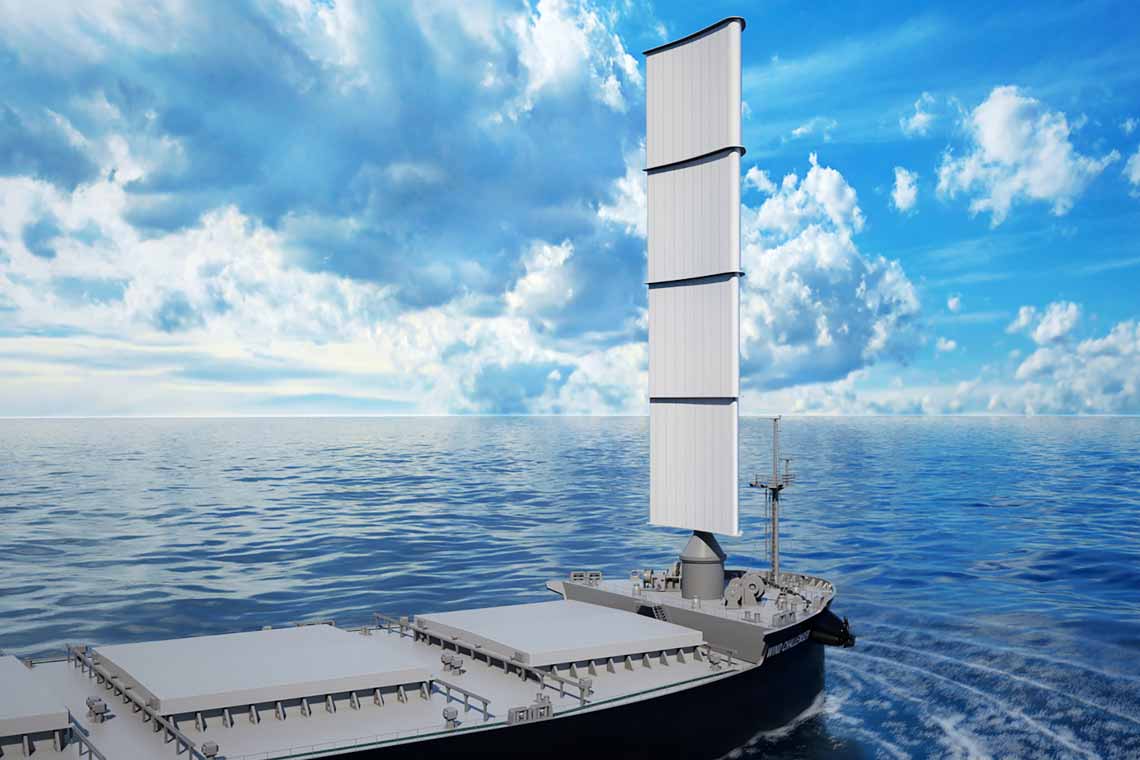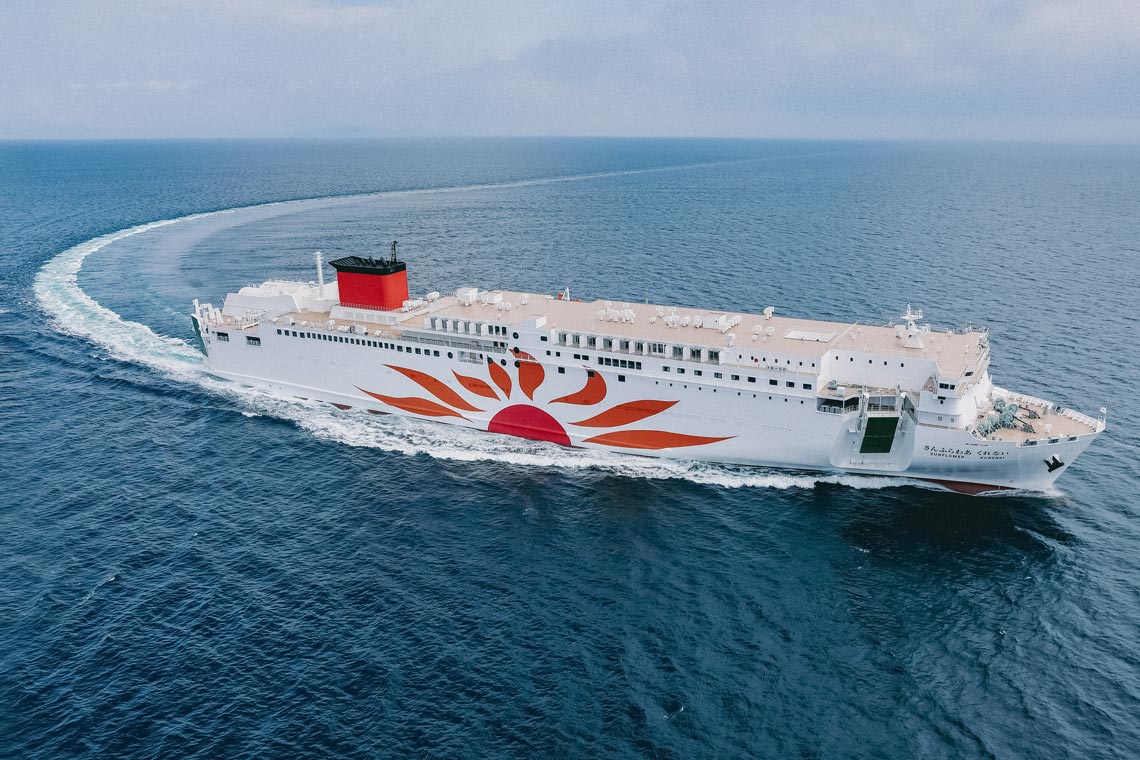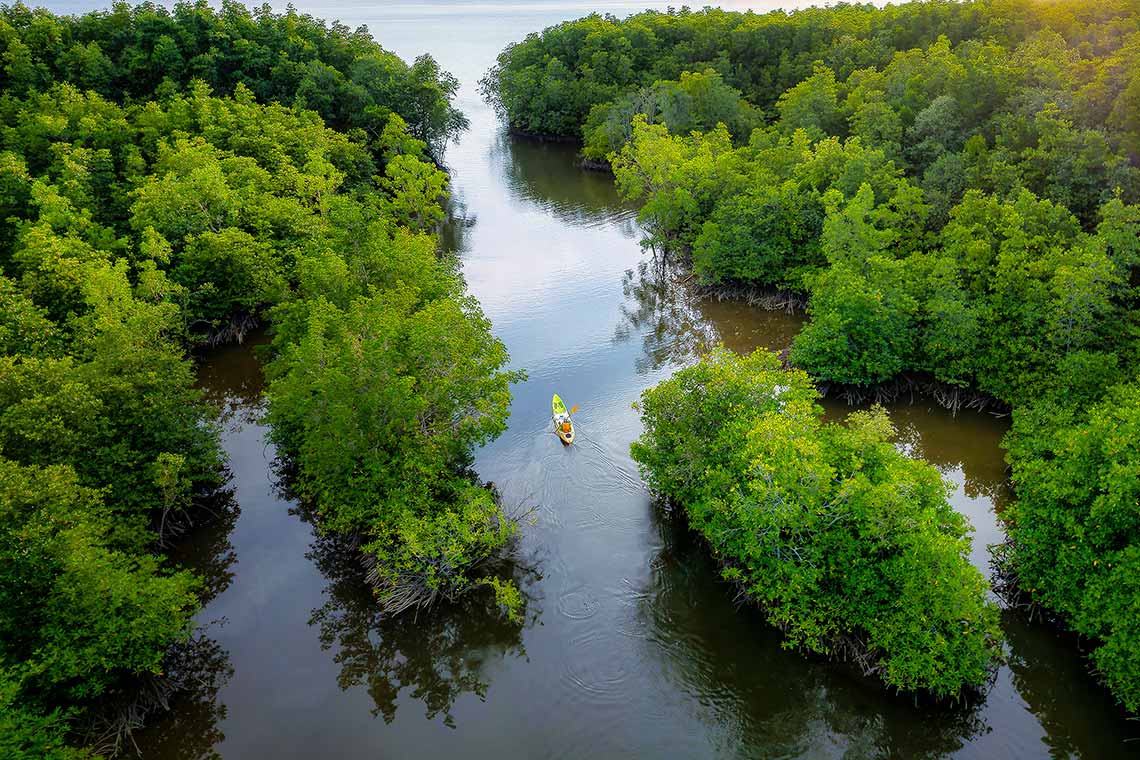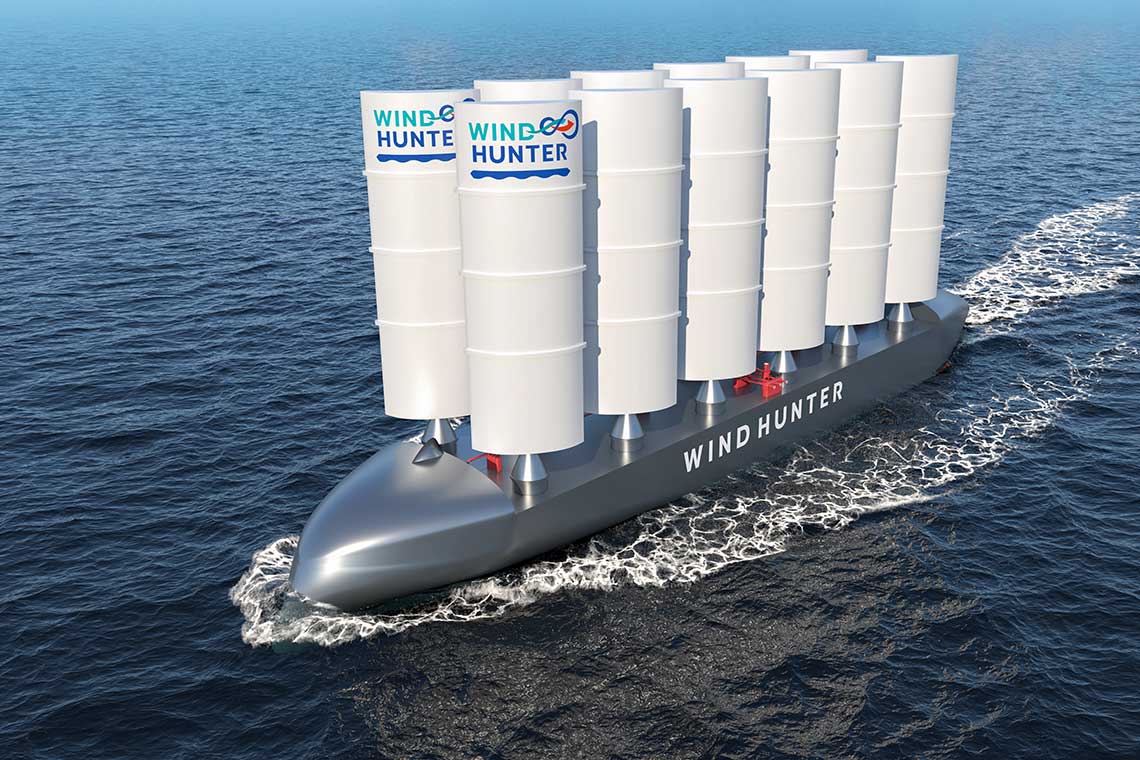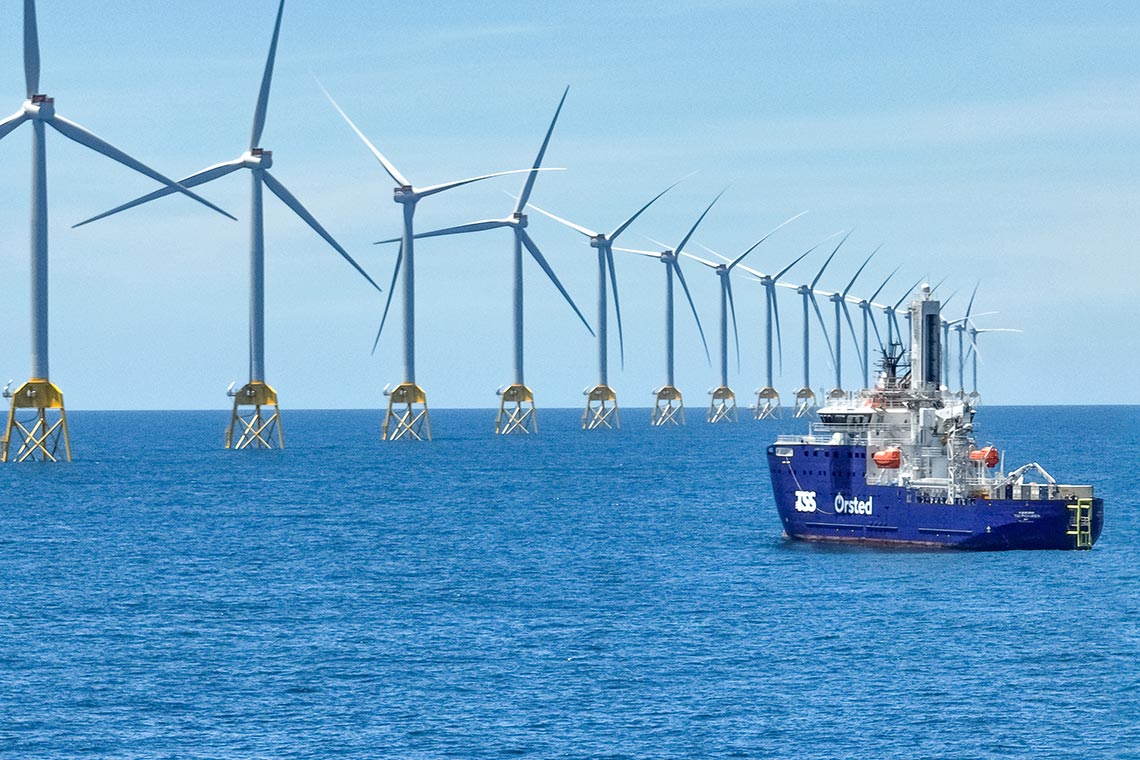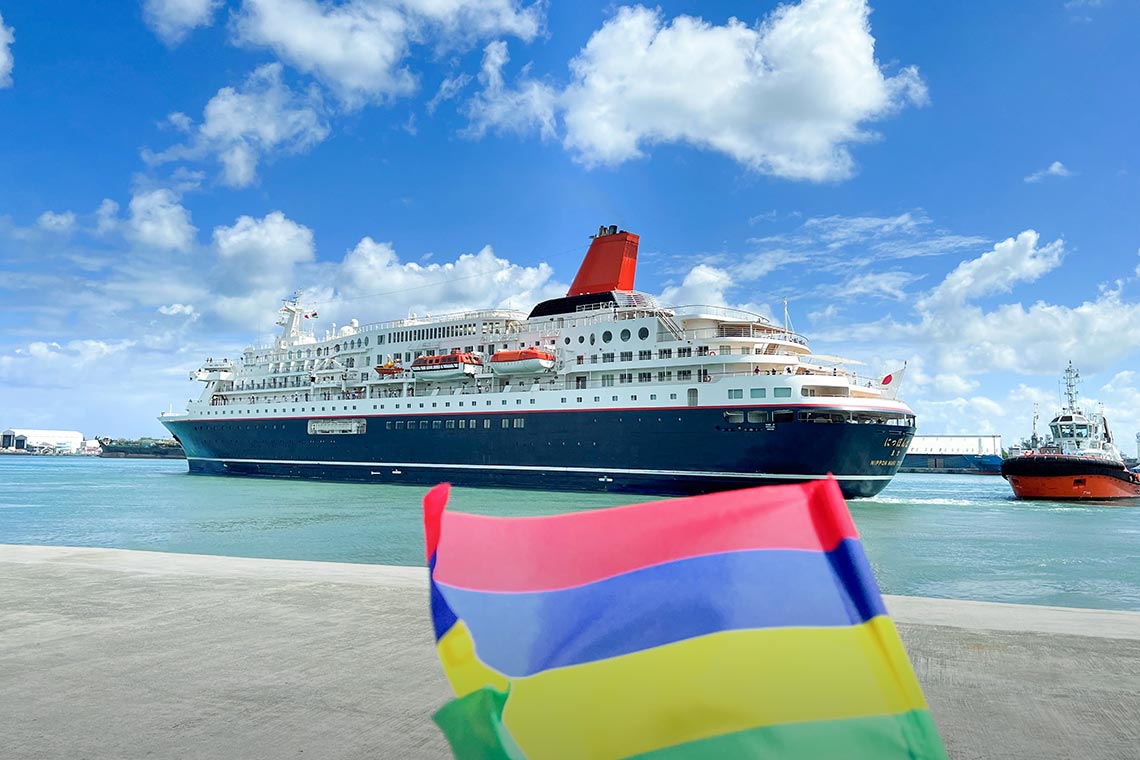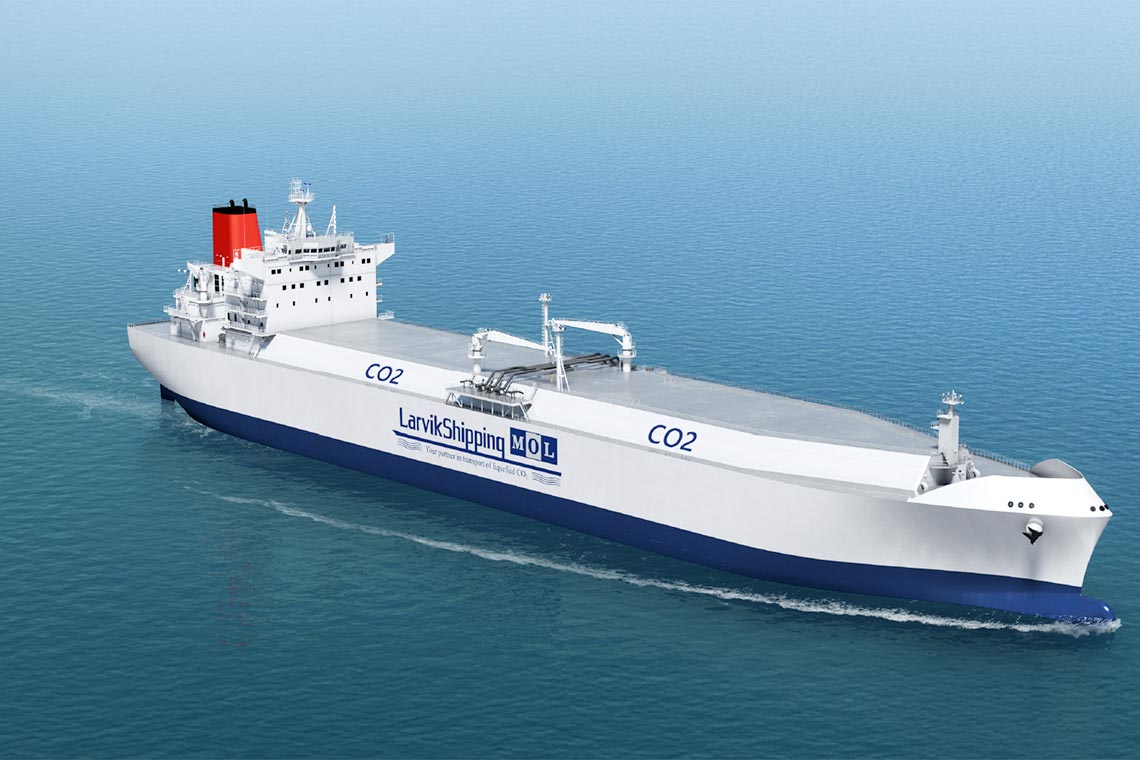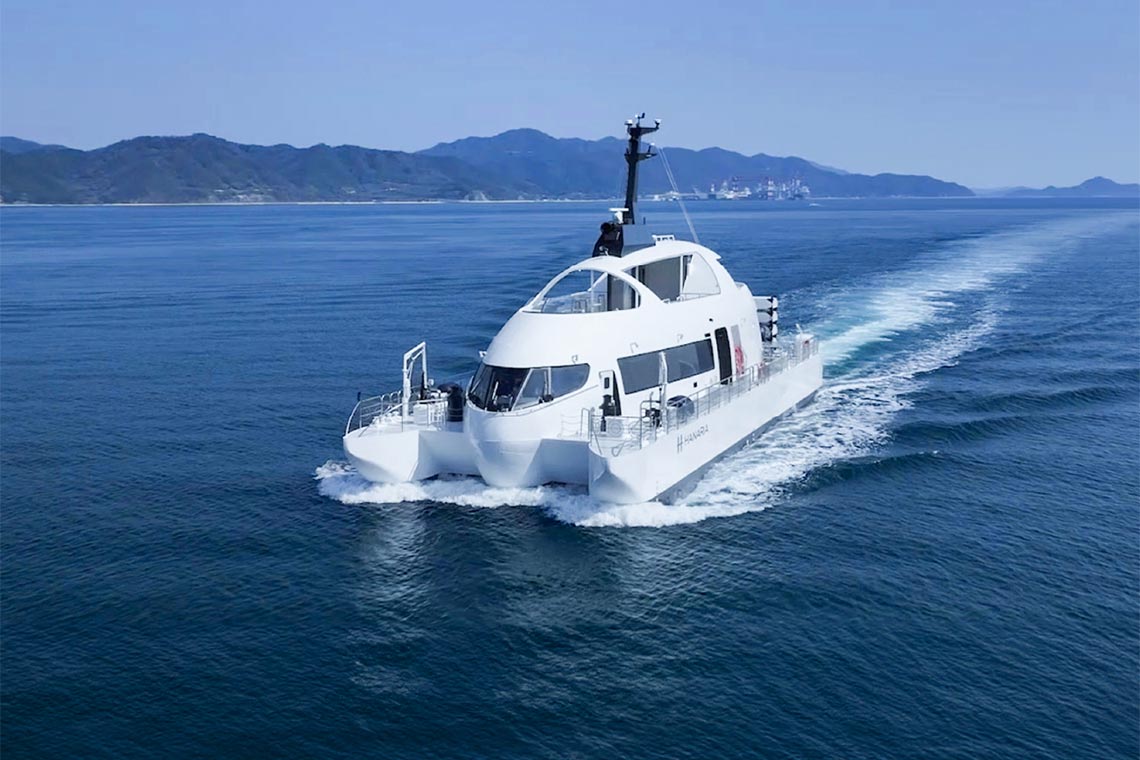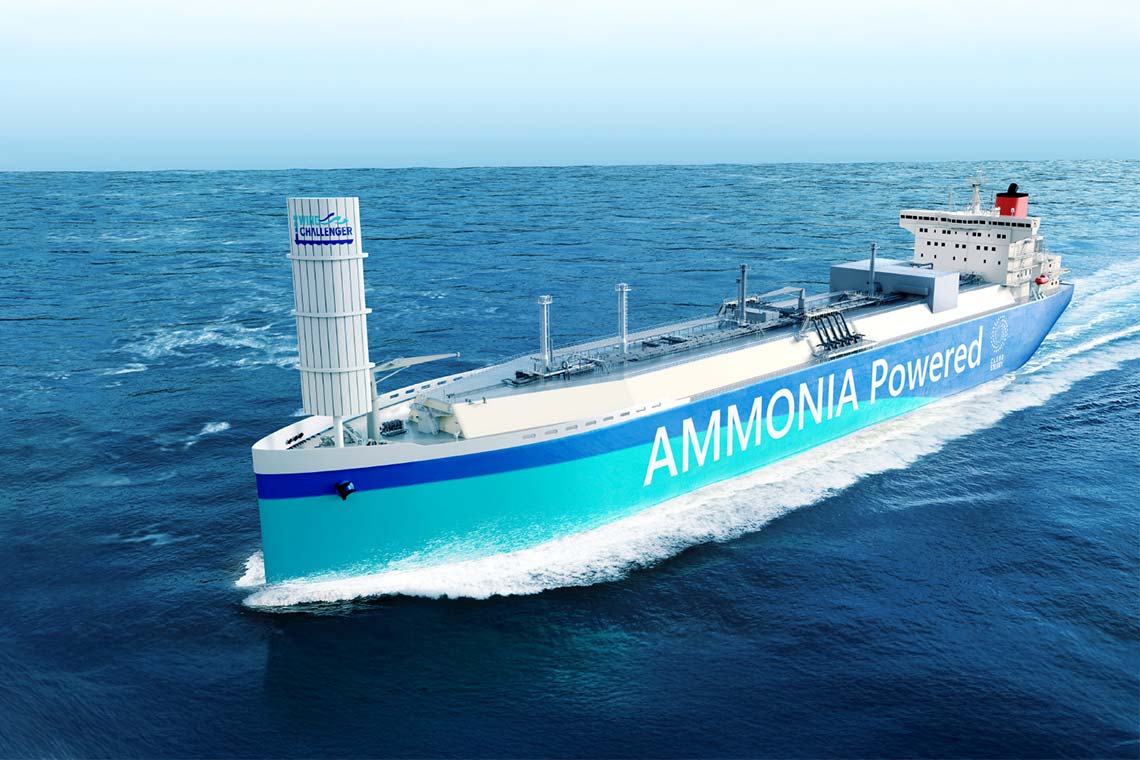
Project
- STATEMENT
- To the future,
with our
'Ocean Planet.'
BLUE ACTION 012
DarWIN Project
Evolution is
the Culmination
of Small Improvements.
Nov 14, 2025

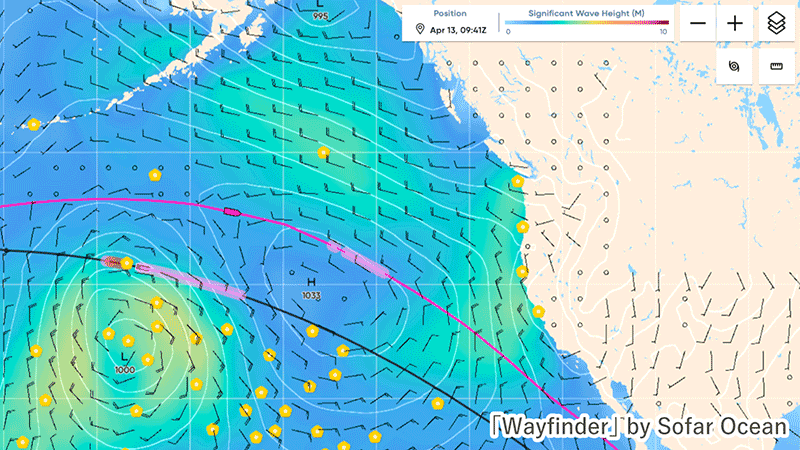


When considering environmental issues, we tend to focus on major innovations. However, it takes time for these to become "usable technologies." In the meantime, the environment continues to change, and the situation cannot wait. That is precisely why Mitsui O.S.K. Lines is doing everything we can right now. A symbol of this effort is the DarWIN (Digital Approach to Reduce GHG With Integrated Network) project, by which we aim to achieve efficient operations via improvements in ship propulsion and energy consumption.
DarWIN encompasses myriad initiatives. For example, we imbue ships with energy-efficient specs by retrofitting energy-saving propellers suited for operations at reduced speed, by installing valves and fins, such as Propeller Boss Cap Fins (PBCFs), to enhance propeller thrust, and by equipping vessels with other energy-saving devices of various size. But that is not all. DarWIN also involves systematic management of existing maintenance practices, such as the use of fuel-efficient, environmentally friendly coatings and cleaning. The program furthermore extends to the optimization of operations, including the selection of optimal routes, speeds, and trim conditions. We are resolutely advancing efforts to reduce environmental impact from every angle. While each individual improvement may be small, their cumulative effect creates a significant impact that we had not imagined before.
FOCUS, a proprietary system developed by Mitsui O.S.K. Lines, visualizes these effects by leveraging big data from the voyages of approximately 900 vessels. We are retrofitting both newbuilds and existing ships with the latest data collection devices. The system collects detailed voyage and engine data in real time to optimize operations. To utilize this data, we established EcoMOL Inc. in the Philippines. By analyzing performance metrics like speed, fuel consumption, and engine workload from the operational data provided by the group's fleet sailing the globe, and then feeding the results back to those vessels, we aim for even more efficient operations. These digital technologies underpin DarWIN.
Building the most advanced ships is not the only way to help the environment. It is equally important to improve our existing fleet with our current knowledge and technology. Mitsui O.S.K. Lines believes that while each individual efficiency gain may be small, their cumulative effect can change the future. The DarWIN Project is our declaration of intent to steadily drive this evolution.
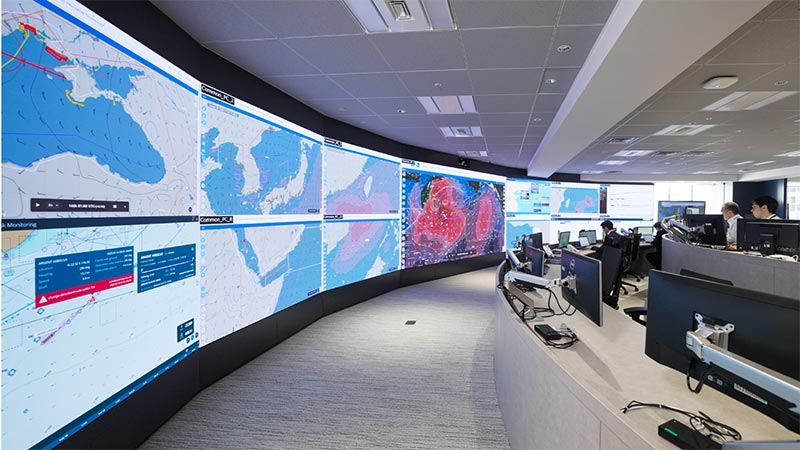
When considering environmental issues, we tend to focus on major innovations. However, it takes time for these to become "usable technologies." In the meantime, the environment continues to change, and the situation cannot wait. That is precisely why Mitsui O.S.K. Lines is doing everything we can right now. A symbol of this effort is the DarWIN (Digital Approach to Reduce GHG With Integrated Network) project, by which we aim to achieve efficient operations via improvements in ship propulsion and energy consumption.

DarWIN encompasses myriad initiatives. For example, we imbue ships with energy-efficient specs by retrofitting energy-saving propellers suited for operations at reduced speed, by installing valves and fins, such as Propeller Boss Cap Fins (PBCFs), to enhance propeller thrust, and by equipping vessels with other energy-saving devices of various size. But that is not all. DarWIN also involves systematic management of existing maintenance practices, such as the use of fuel-efficient, environmentally friendly coatings and cleaning. The program furthermore extends to the optimization of operations, including the selection of optimal routes, speeds, and trim conditions. We are resolutely advancing efforts to reduce environmental impact from every angle. While each individual improvement may be small, their cumulative effect creates a significant impact that we had not imagined before.

FOCUS, a proprietary system developed by Mitsui O.S.K. Lines, visualizes these effects by leveraging big data from the voyages of approximately 900 vessels. We are retrofitting both newbuilds and existing ships with the latest data collection devices. The system collects detailed voyage and engine data in real time to optimize operations. To utilize this data, we established EcoMOL Inc. in the Philippines. By analyzing performance metrics like speed, fuel consumption, and engine workload from the operational data provided by the group's fleet sailing the globe, and then feeding the results back to those vessels, we aim for even more efficient operations. These digital technologies underpin DarWIN.

Building the most advanced ships is not the only way to help the environment. It is equally important to improve our existing fleet with our current knowledge and technology. Mitsui O.S.K. Lines believes that while each individual efficiency gain may be small, their cumulative effect can change the future. The DarWIN Project is our declaration of intent to steadily drive this evolution.

